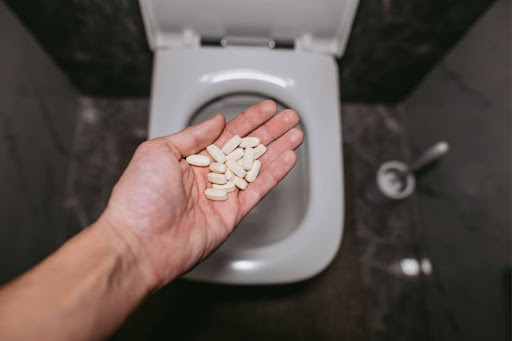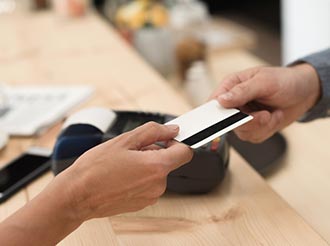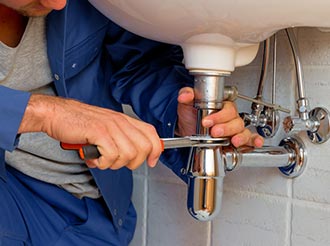
Toilets may seem like they can handle just about anything, but there’s a hidden list of items that can clog pipes, harm the sewer system, and lead to costly repairs. S and J Plumbing is here to break down what your toilet can't break down.
We're Arlington Heights’ trusted team of plumbers, with a suite of top-notch solutions designed to keep your home flowing along freely. From clogged toilet repair to emergency plumbing services, we have all your needs covered. Reach out to us today with any questions about what you shouldn't flush down the toilet or to schedule an appointment.
What Improper Disposal Can Do to Your Plumbing System
Your toilet and plumbing system are designed to wash away only a few things: human waste and toilet paper. Flushing other objects, even if they appear to be harmless, can cause significant problems that require professional intervention.
Clogged pipes are one of the most common plumbing issues caused by flushing the wrong things. When items don't dissolve properly, they get stuck in the pipes, causing backups and overflows. This can lead to water damage, unpleasant odors, and even sewage spills — not to mention the amount of repairs needed to fix the issue.
Improper flushing also puts stress on your entire plumbing system. Over time, frequent clogs and backups can wear down pipes, leading to leaks and other structural issues. This means you may need to replace major plumbing components sooner than expected, which racks up big bills.
Flushable Wipes Aren't Really Flushable
Perhaps the most deceptive culprits for clogging pipes are the so-called "flushable" wipes and baby wipes. These personal hygiene products might seem like a convenient alternative to toilet paper, but they don't actually break down like toilet paper does since they're made from a thicker, non-biodegradable material.
Instead, they clump together and get stuck, causing nasty backups. Even if they do make it through your plumbing, they can still wreak havoc on your sewer system. The safest approach is to throw any flushable wipe directly in the trash can instead of the toilet. This habit can save you money and protect your plumbing system.
Paper Towels & Other Cotton Products
Many people reach for a paper towel to clean up messes in the bathroom, but these products don't belong in the toilet. Unlike toilet paper, paper towels are made to be dense so they can absorb water and other spills. When you flush a paper towel, it holds its form, which can lead to blockages in the pipes. The same goes for other cotton products, such as cotton balls, Q-tips, and rags.
Hair & Dental Floss
Did you know even super thin items like hair and dental floss can disrupt your sewer system? Hair, in particular, acts like a net, catching other debris that tends to cling to the sides of pipes and cause clogs. Dental floss is also troublesome, as it's designed to be strong and durable — qualities that don't work well in a plumbing system. The floss can get tangled around other items, creating a mess that's difficult to clear out.
Feminine Hygiene Products
Feminine hygiene products, including tampons and sanitary pads, should never go down the toilet. These items soak up liquid, so they expand when flushed, increasing the risk of an overflowing toilet or blockage. Flushing these products can also be harmful to the environment, as they may end up polluting waterways. The safest bet is to always dispose of them in the trash, not your toilet.
Medication & Pills
Flushing unused or expired medications down the toilet is another big no-no. These substances can contaminate the water supply and have negative impacts on aquatic life. They also may not get properly filtered out by water treatment plants. Instead, bring medication to a drop-off site or follow your local guidelines for proper disposal. This way, you’re protecting both your plumbing and the environment.
Cat Litter
Cat litter is designed to absorb moisture and clump together. This makes it a poor choice for flushing, as it can quickly clog pipes. Even "flushable" cat litter varieties aren't guaranteed to fully dissolve in your plumbing system. Rather than risking a messy backup, scoop used cat litter into a trash bag and dispose of it properly.
Small Plastic Items & Packaging
Finally, resist the urge to flush small plastic items, including wrappers, bottle caps, or bits of packaging, and always keep them away from the toilet. Plastics don’t dissolve in water, making them notorious for creating blockages. Tiny bits can become lodged in pipes, creating big problems that can be costly to fix. All plastics belong in the recycling or trash, where they can be handled appropriately.
What to Do If You Accidentally Flush Something You Shouldn’t
Accidents happen. If you’ve accidentally flushed an item that shouldn’t go down the toilet, there are a few steps you can take to minimize damage. If the item is visible, you might be able to retrieve it before it enters the pipes. However, if it’s already in the plumbing, avoid using the toilet further. Try using a plunger to see if the item can be dislodged.
If the problem persists, calling a professional plumber from S and J Plumbing can help. We have the tools and expertise to safely remove items without causing further damage.
Call S and J Plumbing for More Toilet Care Tips
Caring for your home's plumbing system is important to avoid costly repairs down the line. At S and J Plumbing, we're dedicated to helping homeowners like you keep their toilets and drains in tip-top shape.
Whether you need assistance with a stubborn clog or have questions about what's safe to flush, our expert plumbers are just a phone call away. Don't risk damaging your plumbing — contact us today for reliable, affordable service you can trust.




